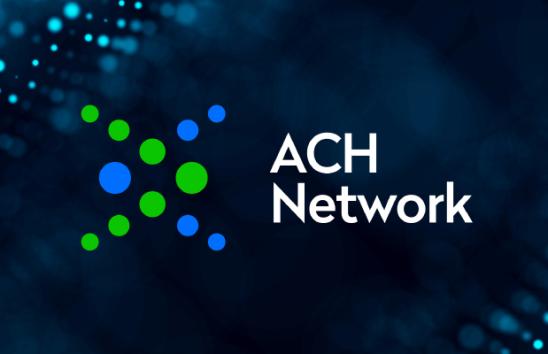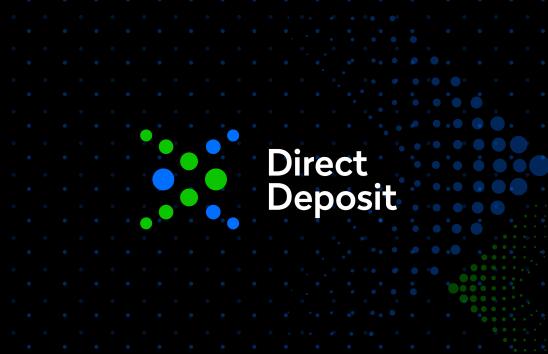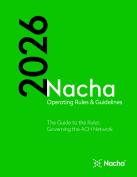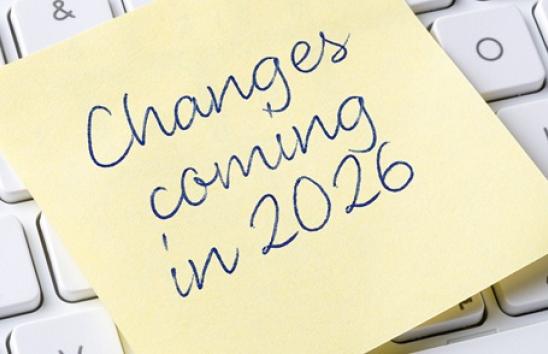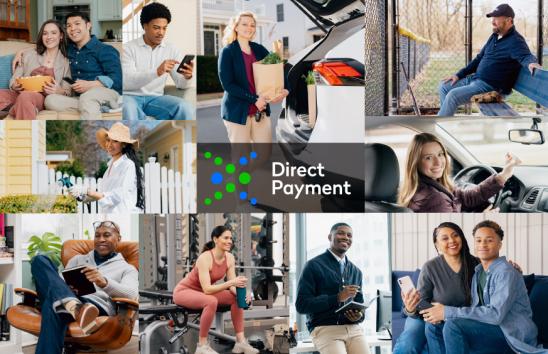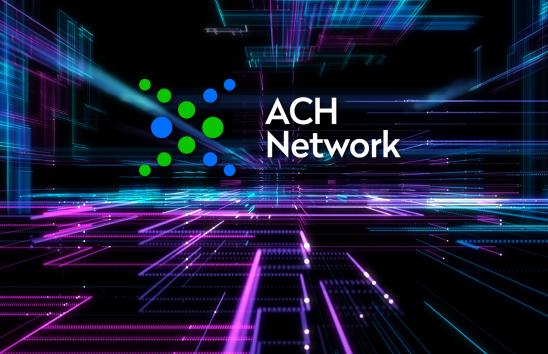ACH Payments Fact Sheet
Nacha supports users having choices in electronic payments – including instant payments (such as FedNow and RTP), credit cards and wire. Electronic payment options can be complementary and give payment system users a choice based on their use case. This Fact Sheet explains key attributes of the modern ACH Network.
About ACH
The ACH Network is the backbone of the U.S. financial system and benefits consumers, businesses and government agencies. ACH payments are used to receive salaries and wages and to pay bills such as mortgages and utilities. Some 93% of American workers receive their pay through the ACH Network, 90.6% of Americans receiving a tax refund this year chose to receive it through the ACH Network and 99% of Social Security payments use the ACH Network.
ACH Payments Reach and Interoperability
The ACH Network reaches all U.S. bank and credit union accounts. The ACH Operators are fully interoperable, exchanging ACH payments with each other multiple times a day.
ACH Payment Types
ACH payments can be credit or debit payments. Large volumes of scheduled and recurring payments between known counterparties on known due dates, such as payroll Direct Deposits, bill payments, account transfers and B2B payments, are well served by ACH.
Direct Deposit by ACH gets workers paid on payday, without delay. If payday is on a Friday, funds paid by Direct Deposit are available in employees’ accounts by 9 a.m. on that day in virtually all cases. Funds from a payroll Direct Deposit on a Friday are not held over the weekend.
The ACH Network offers Same Day ACH, enabling companies to pay many gig and contract workers on the same day that they work. Launched in 2016, Same Day ACH allows ACH payments of up to $1 million to be sent and received on the same banking day. Same Day ACH payments can be settled as quickly as a few hours.
Speed of ACH Payments
ACH payments can be processed in a matter of hours on the same business day or scheduled the following day (or, if the sender desires it, up to two business days for ACH credits). The ACH Network currently processes payments 23¼ hours every banking day and settles payments four times every banking day.
Payments are settled during times when the Federal Reserve’s National Settlement Service (NSS) is open, meaning that payments are not currently settled on weekends and federal holidays. The Federal Reserve has twice previously extended the operating hours of NSS on banking days to support Same Day ACH. As the industry works to build a modern payments infrastructure, it is time to extend the operating hours of the National Settlement Service (NSS) once again. This would allow retail payment systems such as the ACH Network to settle payment activity during additional days and times of the week, including weekends and holidays. Expanding NSS operating hours is consistent with the Federal Reserve’s goal of improving the U.S. payment system.
ACH Advancement
The ACH Network is safe and efficient and has been continually advancing since its inception, adding new capabilities and transaction types, improving processing speeds and expanding operating hours. Same Day ACH was launched in 2016, with enhancements made every year through 2022.
In 2025, the modern ACH Network safely and efficiently processed 35.2 billion payments valued at $93 trillion. 2025 marked the 13th consecutive year in which the total value of ACH payments increased by at least $1 trillion.
American businesses rely heavily on the ACH Network to pay their vendors. In 2025, businesses turned to the ACH Network to process 8.1 billion Business-to-Business payments, a 9.9% increase from 2024.
A total of 17.17 billion consumer-initiated bill payments and other transfers were made via ACH in 2025. Bill payments that are due over a weekend or holiday are collected the next banking day, favoring the consumer.
In March 2022, the Same Day ACH per-payment limit increased from $100,000 to $1 million. In 2025, there were 1.4 billion Same Day ACH payments valued at $3.9 trillion last year, respective increases of 16.7% and 21.4% from 2024. Same Day ACH payments averaged 5.8 million per day in 2025.
ACH vs. Paper Checks
Paper checks are inefficient, costly, and the payment type most prone to fraud. Paper checks and ACH payments are separate and distinct payment methods. Nacha has long supported the migration from paper checks to electronic payments.
FedNow and other instant payment systems do not and will not process physical paper checks. A deposited payroll check cannot be processed through an instant payment rail.
Nacha and the Federal Reserve
Nacha works cooperatively with the Federal Reserve and The Clearing House, as the two Operators of the modern ACH Network, to advance the capabilities of the ACH Network, including through faster processing speed and working with the industry to promote the adoption of Same Day ACH payments.
Nacha has also been a long-term participant in the Federal Reserve’s industry dialogue on improving the U.S. payment system.
Nacha also:
Provides education and tools for those seeking clarity and direction on faster payments, including Same Day ACH and instant payments.
Brings together diverse stakeholders to develop rules and standards that foster compatibility and integration across a range of payment systems.
